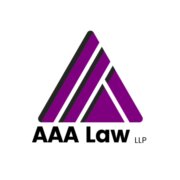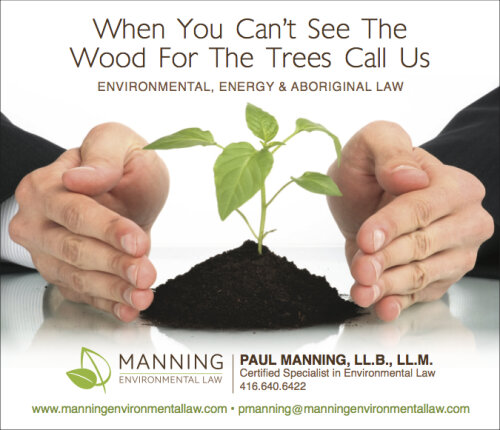Best ESG Advisory & Compliance Lawyers in Toronto
Share your needs with us, get contacted by law firms.
Free. Takes 2 min.
List of the best lawyers in Toronto, Canada
About ESG Advisory & Compliance Law in Toronto, Canada
Environmental, Social, and Governance (ESG) Advisory & Compliance focuses on the legal and regulatory frameworks that guide how companies in Toronto, Canada, operate ethically, sustainably, and with consideration for social responsibility. ESG law involves advising businesses on meeting standards related to environmental stewardship, fair labour practices, transparency, anti-corruption policies, and corporate governance. With growing attention from investors, regulators, and the public, understanding and complying with ESG requirements has become essential for organizations of every size. Legal professionals in Toronto help companies align their operations with evolving ESG regulations and global best practices.
Why You May Need a Lawyer
Employing legal counsel in ESG Advisory & Compliance can provide significant advantages. Businesses often seek legal help in situations such as launching sustainability initiatives, conducting risk assessments, responding to regulatory investigations, preparing ESG disclosures for investors, or navigating the complexities of voluntary ESG reporting frameworks. Lawyers can also assist when integrating ESG principles in mergers and acquisitions, entering joint ventures, or addressing stakeholder demands. Non-compliance or inadequate ESG practices can lead to reputational damage, fines, or exclusion from investment opportunities. A specialized lawyer ensures your organization fully understands its obligations and implements strategies to both comply and excel in the ESG arena.
Local Laws Overview
Toronto companies are subject to a variety of local, provincial, and federal regulations regarding ESG matters. Key law areas include environmental protection statutes, such as the Ontario Environmental Protection Act, and federal laws like the Canadian Environmental Protection Act. Occupational Health and Safety Act provisions govern workplace safety. Companies listed on the Toronto Stock Exchange (TSX) must meet disclosure requirements set by the Ontario Securities Commission and the Canadian Securities Administrators (CSA), which include new or evolving guidelines around climate risk and ESG information. Human rights obligations, labor standards, anti-corruption statutes, and privacy laws also play significant roles. Many businesses additionally follow international frameworks, such as the Global Reporting Initiative (GRI) and the Task Force on Climate-related Financial Disclosures (TCFD), as best practice benchmarks alongside local regulations.
Frequently Asked Questions
What is ESG compliance?
ESG compliance refers to aligning a company’s operations and reporting with standards governing environmental stewardship, social responsibility, and ethical governance. It involves adhering to applicable laws as well as voluntary industry standards.
Why is ESG important for businesses in Toronto?
ESG factors are increasingly used by investors, customers, and regulators to assess a company’s risk, reputation, and long-term viability. ESG can affect investment access, brand value, legal exposure, and competitiveness within the market.
What are the primary ESG regulations for Toronto companies?
Ontario businesses must comply with environmental laws, workplace safety legislation, securities disclosure rules, anti-corruption statutes, and human rights acts. Additional ESG disclosure may be mandated for public companies by securities regulators.
Do private companies need to worry about ESG regulations?
While not all ESG disclosure requirements are mandatory for private businesses, many ESG-related laws around environment, labor, and governance still apply. Private companies must also meet contractual or stakeholder-driven ESG standards in some cases.
What happens if a company does not comply with ESG regulations?
Non-compliance can result in regulatory investigations, significant financial penalties, loss of business opportunities, reputational harm, and even litigation from stakeholders or the public.
Are there incentives for companies to implement strong ESG policies?
Yes, companies with robust ESG practices often attract investors, improve access to capital, enhance risk management, and build consumer trust. In some instances, tax incentives or government grants may be available for specific ESG initiatives.
How can legal counsel help with ESG reporting?
Lawyers assist by reviewing ESG disclosures for accuracy, ensuring compliance with securities laws, aligning company policies with best practices, and advising on risk factors relevant to ESG transparency.
Do multinational ESG standards apply in Toronto?
While only Canadian laws are binding, many Toronto-based companies voluntarily follow international ESG frameworks to satisfy global investors and partners, often integrating these with local regulatory requirements.
Can ESG compliance impact mergers or acquisitions?
ESG risks and credentials are now a major factor in due diligence for mergers and acquisitions. A comprehensive ESG assessment can affect deal value, structure, and integration plans.
What is the role of stakeholders in ESG compliance?
Stakeholders including investors, customers, employees, and community groups increasingly demand that businesses meet high ESG standards. Responsive ESG practices can help manage these expectations and foster long-term support.
Additional Resources
Several organizations and governmental bodies in Toronto and across Canada provide valuable information and support for ESG Advisory & Compliance:
- Ontario Securities Commission (OSC)
- Canadian Securities Administrators (CSA)
- Ontario Ministry of the Environment, Conservation and Parks
- Canadian Human Rights Commission
- Global Reporting Initiative (GRI)
- Task Force on Climate-related Financial Disclosures (TCFD)
- Canadian Bar Association - Environmental, Social and Governance Law Section
Next Steps
If you require legal assistance in ESG Advisory & Compliance, begin by identifying your primary concerns or challenges. Gather relevant business documents, recent ESG reports, and any correspondence from regulators. Seek a lawyer who specializes in ESG, environmental, or securities law in Toronto. During your initial consultation, clearly state your objectives and be prepared with questions about compliance, risk management, disclosure obligations, and stakeholder expectations. An experienced legal adviser will help you develop a tailored ESG strategy that meets both regulatory requirements and your company’s broader goals.
Lawzana helps you find the best lawyers and law firms in Toronto through a curated and pre-screened list of qualified legal professionals. Our platform offers rankings and detailed profiles of attorneys and law firms, allowing you to compare based on practice areas, including ESG Advisory & Compliance, experience, and client feedback.
Each profile includes a description of the firm's areas of practice, client reviews, team members and partners, year of establishment, spoken languages, office locations, contact information, social media presence, and any published articles or resources. Most firms on our platform speak English and are experienced in both local and international legal matters.
Get a quote from top-rated law firms in Toronto, Canada — quickly, securely, and without unnecessary hassle.
Disclaimer:
The information provided on this page is for general informational purposes only and does not constitute legal advice. While we strive to ensure the accuracy and relevance of the content, legal information may change over time, and interpretations of the law can vary. You should always consult with a qualified legal professional for advice specific to your situation.
We disclaim all liability for actions taken or not taken based on the content of this page. If you believe any information is incorrect or outdated, please contact us, and we will review and update it where appropriate.

















